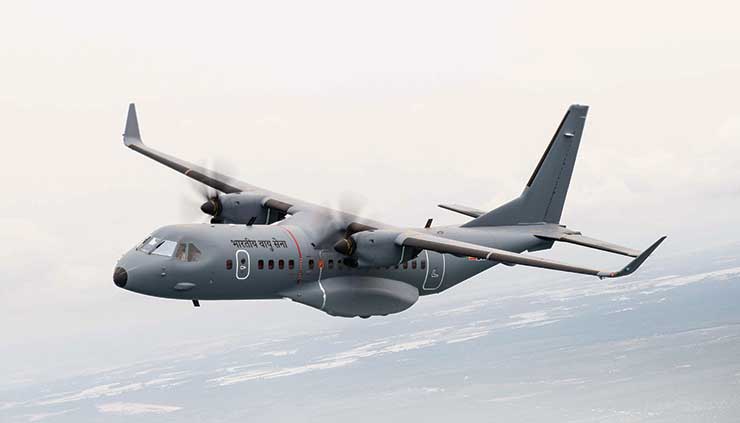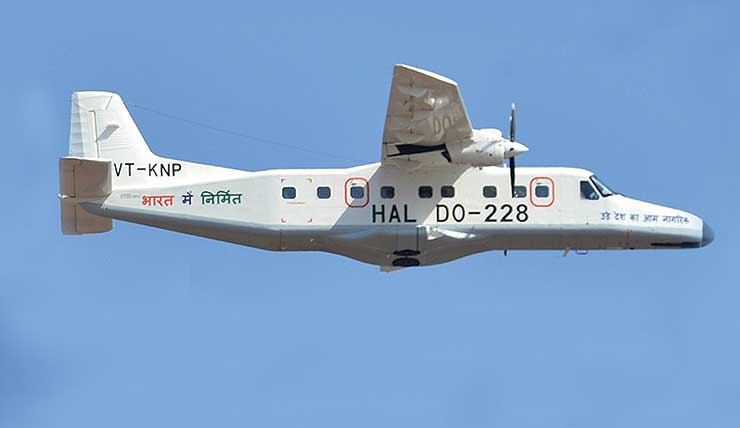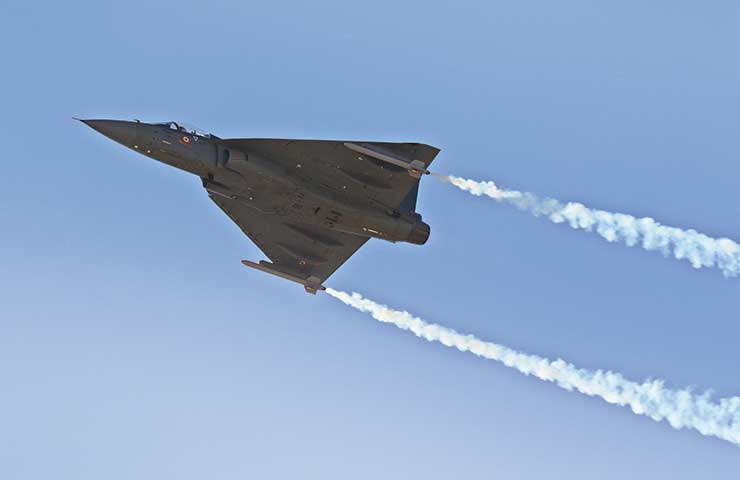
With the government’s focus on fostering domestic capabilities and leveraging indigenous talent in aviation, India is making gradual strides in aerospace manufacturing. By encouraging domestic production and reducing dependency on imports, India aims to bolster its aerospace ecosystem and enhance its global competitiveness.
The lack of domestic manufacturing capabilities for several decades after Independence, both in civil aviation and defence aerospace manufacturing, had remained a major worry till the early 1990s. After opening up of this segment to the private players in the post-liberalisation period in 1990s, the sector has shown considerable progress. Especially, subsequent to the Make in India initiative announced by Prime Minister Narendra Modi in September 2014, there are signs that things are changing for the better.
Several Indian cities, such as Lucknow, Koraput, Nasik, Hyderabad, and Bengaluru, host aircraft-building industries, contributing significantly to India’s aviation landscape. Here is a quick look at some major companies driving the country’s aerospace growth:
Hindustan Aeronautics Limited (HAL)
HAL is a state-owned aerospace and defence conglomerate headquartered in Bengaluru. It is among the prominent, largest and most renowned aircraft manufacturing companies in the country. Established on 23 December 1940, HAL has been instrumental in the design, development, and production of various aircraft, helicopters, and aero engines, as well as the supply of a wide range of avionics and communication equipment, catering to both civil and military markets. It has built military trainer aircraft, fighter jets, helicopters, and agricultural aircraft and has one of the largest maintenance depots and engineering services in the world. HAL stands as one of India’s largest and most prestigious aircraft manufacturing entities, credited with the production of indigenous aircraft like the Tejas Light Combat Aircraft (LCA) and the Advanced Light Helicopter (ALH). HAL’s expertise extends to aircraft upgrades, overhaul services, and the manufacture of aerostructures, avionics, and other critical components.
Tata Advanced Systems Limited (TASL)
TASL, a subsidiary of Tata Sons, is a leading private aerospace and defence company in India. With state-of-the-art manufacturing facilities and strategic partnerships with global aerospace giants, TASL has been at the forefront of aerospace innovation. They have successfully delivered critical aerospace components and systems, including fuselages, wings, aerostructures, and avionics for various international programs. TASL’s collaboration with original equipment manufacturers (OEMs) and their commitment to research and development have positioned them as a trusted partner in the global aerospace industry.
TASL is set to undertake the manufacturing and assembly of 40 C-295 transport aircraft within the country. This initiative underlines the company’s commitment to bolstering indigenous aerospace capabilities and fostering strategic partnerships in the defence sector. TASL is close to acquiring the capability to manufacture full aircraft, radars, and unmanned aerial vehicles (UAVs). It has tied up with Airbus for the manufacture of C-295 transport aircraft, a replacement for Avro HS-748. Its partnership with Airbus includes the supply of 16 aircraft in fly-away condition and 40 to be built in India.
Mahindra Aerospace
The Mahindra Group entered the aerospace industry in 2008 through its new entity, Mahindra Aerospace. In 2010, it acquired the Australian entities Gipps Aero and Aerostaff. It is the first Indian company to go into full aircraft production, albeit on a small scale and outside India. In 2010, the company began developing a 25,000 square meter facility outside Bengaluru to produce airframe parts and assemblies within the country. The facility was formally inaugurated in 2013 and is now delivering aerospace sheet metal parts and assemblies for global companies. The company recently signed a “Statement of Intent” with Airbus Helicopters to form a joint venture for producing military helicopters in India.
Recently, the Directorate General of Civil Aviation (DGCA) granted approval to a new variant of ‘Hindustan 228-201 LW’, manufactured by HAL. With a 19-passenger capability, this milestone marks HAL’s first venture into the civil aviation space, signalling India’s ambition to become a key player in commercial aerospace manufacturing
Mahindra Aerospace’s portfolio includes the design, development, and production of aircraft, aerostructures, and aircraft components. Its achievements include the production of the Airvan series of utility aircraft, which have gained international recognition for their ruggedness, versatility, and cost-effectiveness. The company’s focus on advanced manufacturing techniques, quality standards, and collaborations with global aerospace companies has elevated its presence in the industry.
Bharat Forge
Bharat Forge, the flagship company of the Kalyani Group, has established itself as a renowned manufacturer and supplier of forged and precision-machined critical components and sub-assemblies widely utilised in high-performance engines, aerospace applications, and defence systems.
Bharat Forge has emerged as a leading supplier of various components, including airframe, structural, and engine parts for the aviation sector. The company is well-known for its manufacturing capabilities of aircraft compressors, turbines, and fan blades in India.
Expanding beyond the military market, Bharat Forge also operates in the commercial sector, supplying critical Indian components in fully finished condition to industry giants such as Rolls Royce and Honeywell.
Aeronautical Development Agency (ADA)
ADA plays a crucial role in the development of aerospace technologies and platforms in India. The company collaborates with HAL and various other aerospace organisations to harness expertise from across the country. ADA, under the aegis of the Department of Defence Research and Development (DDR&D), and the Ministry of Defence has successfully type-certified Tejas LCA, a multi-role supersonic fighter aircraft, which has showcased India’s capabilities in advanced aircraft manufacturing and technology. Indian Air Force has already operationalised Tejas LCA Mk1.
The road to an independent Indian aircraft manufacturing OEM is long and arduous, given the challenges of import dependence, technical complexities, and fierce competition. However, the large domestic market, which is set to become the third largest in the world, by 2030, has the potential for creating robust demand for domestic manufacturing of both commercial and military aircraft
Dynamatic Technologies Limited
Dynamatic Technologies is a leading aerospace and defence manufacturing company in India, specialising in precision engineering and manufacturing solutions. They boast a diverse product portfolio, including aerospace structures, systems, and components. Dynamatic has earned recognition for its expertise in complex aerostructures and hydraulics, supplying critical components to major global aerospace programs. Their commitment to research and development, and innovation, has positioned them as a reliable supplier to the global aerospace industry.
Aequs
Aequs operates as a global aerospace ecosystem with comprehensive capabilities across forging, precision machining, surface treatments, and aerostructure assemblies. Aequs has garnered various quality certifications essential for aerospace manufacturing, including NADCAP accreditation for chemical processing, surface treatments, and NDT, as well as AS9100D certification for its quality management system. These certifications underscore Aequs’s commitment to excellence and have established it as a trusted partner for industry giants such as Airbus, Boeing, Safran, Dassault, Collins Aerospace, Eaton, Honeywell, SAAB, and GKN Aerospace.
Kineco
Kineco, established by Shekhar Sardessai in 1995, is a leading Indian composites manufacturing company focusing on mass transit, aerospace, and defence. Employing around 700 people across three manufacturing sites in Goa, India, including the Kineco Kaman JV, it serves diverse industries such as railways, industrial, defence, automotive, and marine.
Recently, Pilerne Goa-based Kineco Kaman Composites India secured a significant contract worth Rs 100 crore ($12.39 Mn) from BAE Systems. This contract entails the manufacture and export of fully assembled Mission Crew Workstations (“Consoles”) for the Boeing P-8 Poseidon Aircraft, a versatile patrol and reconnaissance aircraft, operated by the Indian Navy.
Having been involved in this program since 2013, Kineco Kaman has already supplied over 700 Consoles to BAE Systems, earning several Gold Supplier awards for its impeccable delivery and quality performance. In 2020, it received the prestigious BAE Systems “Partner2Win Supplier of the Year” award for outstanding performance.
Motherson
Established in 1975, Motherson is a prominent auto component manufacturer renowned globally, operating from over 350 facilities in 41 countries across five continents and employing over 180,000 individuals. It serves as a key supplier to OEMs worldwide. Motherson’s Aerospace division marks a strategic expansion beyond the automotive sector. With a focus on becoming a preferred global solutions provider to aerospace customers, this initiative leverages Motherson’s existing capabilities while actively acquiring new competencies to meet evolving demands. Collaborating closely with Motherson’s other business divisions, the Aerospace division undertakes greenfield and brownfield projects to cater to clients in India and abroad.

SASMOS
SASMOS is a leading design and manufacturing company specialising in electrical wiring interconnection systems, electromechanical assemblies, electronic sub-systems, and fiber optic interconnectivity products for various industries including air, land, weapon, marine, space, and nuclear segments. Its defence systems division is relentlessly focusing on R&D for customised electronics/electrical/electro-mechanical solutions.
These are just a few examples of the leading aircraft manufacturing companies in India. Apart from them, many innovative start-ups showcase their achievements, technological expertise, and commitment to quality, propelling India’s aerospace industry to new heights. As these companies continue to push boundaries and contribute to the global aerospace sector, the future looks promising for India’s aerospace manufacturing capability.
Airbus, a global aviation leader, collaborates closely with Indian suppliers, sourcing approximately 650 million dollars’ worth of manufactured parts and engineering services annually from over 45 Indian companies. Airbus commercial aircraft and helicopters incorporate critical technologies and systems designed, manufactured, and maintained in India. Airbus, in partnership with local manufacturers, supports nearly 10,000 jobs in India, with plans to increase this number to about 15,000 by 2025. India is one of the key markets for Airbus, which received orders for more than 700 planes from IndiGo and Air India last year. Also, IndiGo, the country’s largest airline, has only Airbus aircraft in it.
New Developments
Recently, the Directorate General of Civil Aviation (DGCA) granted approval to a new variant of ‘Hindustan 228-201 LW’, manufactured by HAL. With a 19-passenger capability, this milestone marks HAL’s first venture into the civil aviation space, signalling India’s ambition to become a key player in commercial aerospace manufacturing. The variant has a maximum take-off weight of 5695 kgs, and provides several operational benefits for operators, such as reduced pilot qualification requirements enabling pilots with a commercial pilot license to fly the aircraft, and lower operational cost.
In addition, the new variant will result in reduced training requirements for flying and ground crew, including aircraft maintenance engineers. The approval of the ‘Hindustan 228’ aircraft underscores India’s commitment to developing indigenous aircraft for both civil and defence purposes. It marks a significant shift in the country’s aerospace industry, with potential implications for regional connectivity and economic growth. HAL and other aviation companies based in India are significant suppliers of aircraft components worldwide.
In another encouragement, the Digital Fly by Wire Flight Control Computer (DFCC) was integrated with prototype Tejas Light Combat Aircraft Limited Series Production – 7 (LSP7) and successfully flown by Wing Commander Siddarth Singh KMJ (Retd) of the National Flight Test Centre on February 19, 2024. Significantly, DFCC has been indigenously developed by the ADE, Bengaluru for the Tejas Mk1A. DFCC features a Quadraplex Power PC-based Processor, high-speed autonomous state machine-based Input/Output controller, enhanced computational throughput and complex on-board software complied with DO178C level- A safety requirements.

The improved version of the aircraft, Tejas MK1A features an advanced mission computer, high-performance DFCC Mk1A, Smart Multi-Function Displays (SMFD), Advanced Electronically Scanned Array (AESA) Radar, Advanced Self-protection Jammer, Electronic Warfare Suit etc.
Furthermore, Airbus and Dynamatic Technologies have announced collaboration to manufacture A220 doors under the ‘Make in India’ initiative. This partnership will not only strengthen the country’s manufacturing capabilities but also foster job creation and technology transfer.
Takeaways
Currently, India heavily relies on imports for most commercial aircraft and major components. Building the entire ecosystem for a robust OEM, from raw materials to design and manufacturing, requires significant capital investments and technological advancements. The road to an independent Indian aircraft manufacturing OEM is long and arduous, given the challenges of import dependence, technical complexities, and fierce competition. However, the large domestic market, which is set to become the third largest in the world, by 2030, has the potential for creating robust demand for domestic manufacturing of both commercial and military aircraft. The aerospace sector in the country is at the inflection point, similar to the telecom and automotive sectors two or three decades ago.
Collaborations between industry players, academia, and government agencies will play a crucial role in driving innovation and sustainable growth. The journey towards an independent Indian aircraft manufacturing OEM is a complex one, but not impossible
The question of precisely how far the Indian market is from achieving an independent aircraft manufacturing OEM remains subjective, with multiple factors influencing this journey. Initiatives like “Make in India” and “Atmanirbhar Bharat” aim to promote domestic manufacturing, including in the aerospace sector. India boasts a growing aerospace ecosystem with both public and private players engaged in component manufacturing, sub-assembly, and maintenance, repair, and overhaul (MRO) activities.
Furthermore, Indian research institutions and tech companies are increasingly contributing to aerospace technologies, such as composite materials, electric propulsion, and artificial intelligence. Collaborations between industry players, academia, and government agencies will play a crucial role in driving innovation and sustainable growth. The journey towards an independent Indian aircraft manufacturing OEM is a complex one, but not impossible.
–The writer is a senior journalist and media consultant. The views expressed are of the writer and do not necessarily reflect the views of Raksha Anirveda















